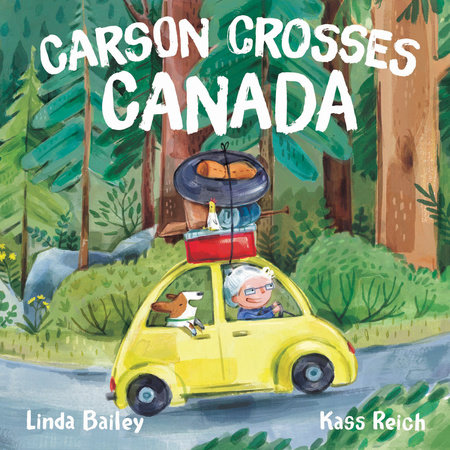Musings on family history, regional history, book reviews, and miscellaneous observations and comments by a genealogist and librarian living near the Great Smoky Mountains in East Tennessee.
Wednesday, May 31, 2017
The Foundling
Fronczak, Paul Joseph with Alex Tresniowski. The Foundling: The True Story of a Kidnapping, a Faily Secret, and My Search for the Real Me. New York: Howard Books, 2017.
This is a fascinating story, solved in part by DNA. Paul Fronczak was kidnapped in a Chicago hospital shortly after his birth by a one pretending to be a nurse. About two years later, a child was left in front of a McCrory's store in Atlantic City, New Jersey. Police wondered if it might be Fronczak. He was put in a home with a family who often cared for children in such circumstance. The family formed a special bond with the child, but he was ultimately destined to live as Paul Fronczak. Years later, Paul wanted to determine if he was the Fronczak child, and if not, who he was -- and what happened to the real Paul. DNA tests confirmed his suspicions he wasn't the real Paul, but that's just the beginning of the story. It's an interesting, although sometimes repetitive story, which could have used better editing. "Paul" needed a better balance between his own family life and his quest for his identity. I think he probably tries too hard to convince himself it was "in his genes" instead of owning up to his familial responsibilites. Still, it is a captivating story of abandonment, but I would be remiss if I didn't warn people parts of the story are not pretty. "Paul" was fortunate to have a team of genetic genealogists and DNA testing companies assisting in the search for his identity. It's not something most adoptees will have as they approach their quest. Still "Search Angels" and "DNA Detectives" are out there to help many adoptees uncover their true identities. It is unfortunate a list of resources was not included at the end of the book to help persons who might wish to pursue it.
Tuesday, May 30, 2017
Carson Crosses Canada
Bailey, Linda. Carson Crosses Canada. Illustrated by Kass Reich. Toronto: Tundra Books, 2017.
Carson, the dog, crosses Canada with his owner Annie Magruder to visit her sister who is sick. They begin along the Pacific. They cross the Canadian Rockies, visit Lake Winnipeg and Niagara Falls, stop in Quebec where Carson learns he is a "chien", and then cross to Nova Scotia, eventually taking a ferry to their destination in Prince Edward Island. At the end a "surprise" is awaiting him. I don't want to give the surprise away, but I will say Carson loved it. It's a book I can imagine preschoolers wanting to revisit often. I received an advance electronic copy of the book from the publisher via NetGalley for review purposes.
Monday, May 29, 2017
Tips & Quips for the Family Historian
Mills, Elizabeth Shown and Ruth Brossette Lennon. Tips & Quips for the Family Historian. Baltimore: Genealogical Publishing Company, 2017.
Elizabeth Shown Mills and her granddaughter Ruthie teamed up to provide genealogists everywhere with a book of quotations pertinent to the field. The quotes are attributed not only to genealogists, but also to authors, entertainers, historians, and other persons, even fictitious characters, such as "Frasier Crane." The book will be an asset for genealogists and genealogical speakers for years to come. While the quotation categories are too numerous to include, the quotes are wide-ranging--from accuracy to writing--including such categories as document analysis, family trees, genetic genealogy, maps & mapping, plagiarism, and standards. Some quotes were included more than once under different relevant topics. Each attributable quotation is cited in the endnotes. An index of persons quoted is included. Keywords to locate relevant quotation sections are also provided. It fills a void in genealogical reference. Its creation by a granddaughter-grandmother team, particularly when the grandmother is one of the world's most respected genealogists, is a bonus for genealogists.
Tuesday, May 16, 2017
New Boy
Chevalier, New Boy. (Hogarth Shakespeare.) New York: Penguin, 2017.
This is the most disappointing installment of the Hogarth Shakespeare series I've read to date. The author reimagines the setting of Othello as a sixth grade classroom in 1970s Washington, DC. Osei is a new kid from Ghana who makes friends with Dee. Ian is the class bully. Other children, the teachers, and a principal all carry on the other parts. The handkerchief of the original play is now a pencil case. The re-imagining did not work for me. I felt I was reading a book marketed for middle schoolers. I felt the sixth graders of the 1970s were a little more like modern sixth graders than ones of that era. This retelling does not make me want to grab any of the author's other works. This review is based on an advance review copy received through NetGalley in exchange for an honest review.
Tuesday, May 09, 2017
Scars of Independence
Hoock, Holger, Scars of Independence: America's Violent Birth. New York: Crown, 2017.
Hoock's main purpose is to show the Revolutionary War for the violent war it was. He feels most histories sugar-coat the war. He does a good job showing conflicts between Patriots and Loyalists. His descriptions of the persecution faced is often graphic. He also discusses why many Loyalists chose not to return after the war. The author does a good job with documenting his work. It's a bit too academic in tone and too gory to really be as readable as some histories of the war. Academics and military history enthusiasts are likely to find it far more enjoyable than I did. This review is based on an electronic advance review copy received by the publisher through NetGalley for review purposes.
Subscribe to:
Posts (Atom)


